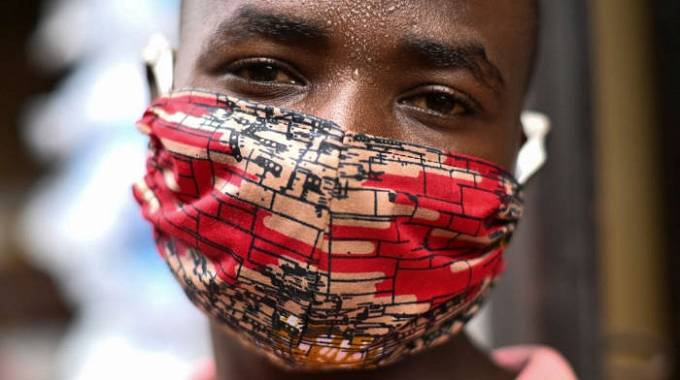COMMENT: Is the answer not hidden in Africa’s broad daylight?

BBC angered many black Africans last week after publishing a story that wondered why Covid-19 had not killed as many people on the continent as the broadcaster and many other Western news outlets had projected.
As the Covid-19 pandemic was infecting millions and killing tens of thousands in Europe and America over the past few months, many Western media, think tanks and influential people had apocalyptic projections on Africa.
They claimed that the general overcrowding, poverty and some underlying conditions among Africans, especially HIV and Aids could lead to high numbers of coronavirus infections and fatalities in Africa.
BBC headlines such as “Coronavirus in Africa: Contained or unrecorded?”, “Coronavirus in South Africa: The lullabied before the surge?, Coronavirus: Could African countries cope with the outbreak?” made some in Africa ask whether the global news network, which generally represents British and Western thinking, was unhappy that Africans were not dying enough from an infection that has battered the US and Europe.
The latest BBC story to anger Africans headlined “Coronavirus in South Africa: Scientists explore surprise theory for low death rate,” went online on Thursday.
After projecting that Covid-19 could spread fast in Africa because of the preponderance of poverty, BBC appears to now wonder if poverty was actually the reason why the infection had been so far small on the continent!
“Crowded townships, poor hygiene,” the report read in part.
“The impossibility of social distancing in communities, where large families often share a single room. For months health experts have been warning that living conditions in poor, urban communities across Africa are likely to contribute to a rapid spear of coronavirus . . . but what if the opposite is also true? What if those same crowded conditions also offer a possible solution to the mystery that has been perplexing experts on the continent for months? What if — and this is putting it rather crudely — poverty proves to be the best defence against Covid-19?”
Mrs Melinda Gates, wife to one of the world’s richest men, American Mr Bill Gates, forecast in April:
“Covid-19 will be horrible in the developing world,” warned “My heart is in Africa. I am worried. The only reason why the reported cases of the coronavirus disease in Africa is low now is most likely because there have not been wide testing of people. The disease is going to bite hard on the continent. I see dead bodies in the streets of Africa.”
Contrary to those dire forecasts, the number of coronavirus disease has actually been decreasing over the past six weeks, says the World Health Organisation. By 9AM yesterday, there were 1 077 664 million cases and 22 883 deaths in Africa’s 54 countries which have 1,216 billion people. By Sunday, the worst-hit African country, South Africa had 636 884 confirmed cases with 14 779 fatalities. The number of recoveries in that country is also huge, 561 204, a recovery rate of 88 percent. Zimbabwe has 6 837 cases and 206 deaths. There are 5 345 recoveries, representing a recovery rate of 78,2 percent.
According to the figures, Africa’s cumulative infections and fatalities are way lower than the US’s which has 6 432 209 infections and 192 864 deaths in a population of 328,2 million. The UK has 344 000 infections and 42 000 deaths in a population of 66,65 million.
Many reasons have been advanced why Africa has had fewer cases. That the continent has a youthful population, whose bodies are strong enough to fight the infection is one of them.
The other has been that the continent isn’t so strongly integrated with the global travel market.
As well-meaning scientists and some Westerners seeking bad African news try to figure out the real reasons, perhaps the answer is hidden in Africa’s broad daylight!
A study by the University of Chicago Medicine whose findings were published on Thursday, says patients they surveyed who had vitamin D deficiency that was untreated were almost twice as likely to test positive for the Covid-19 coronavirus compared to patients who had sufficient levels of the vitamin.
It has been reported that vitamin D deficiency in the US as elsewhere in the West is much higher, rates seen in African Americans and other darker-skinned people.
Why the Covid-19 impact has been greatest among blacks in Europe and the US, in addition to their high-risk frontline jobs as drivers, nurses and so on is, according to some reports, likely because of their pigmentation which is unable to absorb much of the so-called sunshine vitamin in cloudier Western climes. Because of their lighter pigmentation, whites are better able to absorb the little vitamin D in cloudier environments.
If lack of sunshine is such a factor in cloudier regions, longer periods of sunshine in Africa might be one of the biggest factors why Covid-19 hasn’t been so harsh on Africa.
We must, however stress that ours is a hypothesis which scientists may have to test to establish if, indeed, the African sunshine, averaging seven hours daily, could be one of the reasons why the continent has defied ghastly Covid-19 projections.
Pending that study, we must continue wearing masks the right way, observing social distancing, washing our hands with soap and sanitising regularly, practising recommended respiratory hygiene and seeking medical attention when we suspect we are infected with Covid-19.








Comments